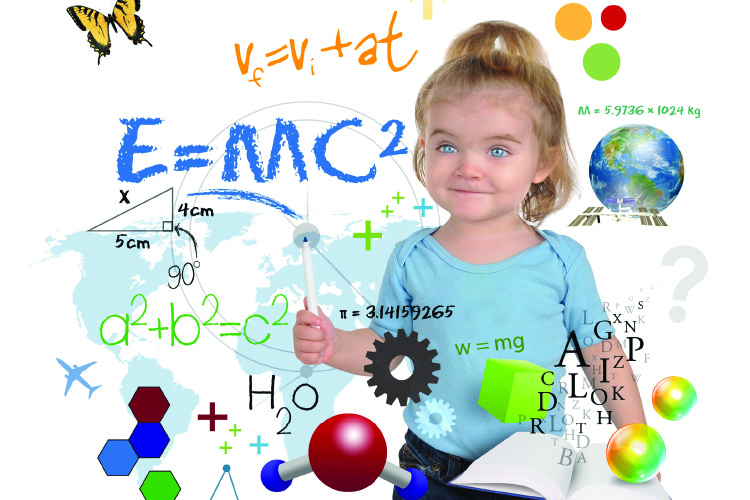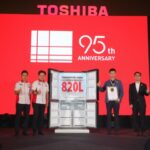Preschoolers are smarter than you think – that is why math and science are important subjects for this age group. Learn how to make it fun and interesting for them.
Mathematics and science are subjects that older children must learn. However, why are educators and experts recommending them for preschool kids as well? That’s because starting early helps your little one develop competence in these subjects.
According to Greg J. Duncan, Amy Claessens and Mimi Engel from the School of Education and Social Policy at Northwestern University, the early years are essential to children’s development of mathematical competence.
“Mathematics is a core component of cognition,” they explain in a paper for the University. “One extensive study showed that the better children were at reading as preschoolers, the better they were at reading in elementary school. And the better preschoolers were at mathematics, the better they were at mathematics in later grades. This is important information but not surprising. However, this is only half of the story. Early reading predicts only later reading ability. Mathematics in preschool predicts not only mathematics but also later literacy and reading. Mathematics is a general cognitive skill.”
Math learning in preschool is all about counting, number recognition and one-to-one correspondence. Don’t worry if your little one does not sail smoothly in these activities in the beginning – as it takes time for them to comprehend mathematics. This said however, it’s important to use age appropriate techniques to help your child master maths so it will be as easy as 1,2,3.
According to Grace Davila Coates, Program Director of Family Math (Lawrence Hall of Science, University of California at Berkeley) and co-author of Family Math for Young Children, kids at this age know different numbers but may not necessarily capture the meaning of them.
“Many three-year-olds may be able to identify a 3, but they don’t understand what 3 means. It’s important for parents to understand the difference between conceptual learning and skill development,” she says. “Look for teachable moments, count things that are familiar to the child as she plays or helps you with simple chores. Counting socks, toy cars, or other toys will maintain her attention and have more meaning for her. Play is learning for three and four-year olds. Follow their interests and create environments that encourage creativity and exploration.”
As for science, it’s a wonderful subject for preschoolers as they are naturally curious and they love to explore things around them. Science can encourage their natural curiosity and help them develop essential mental and cognitive skills. It also helps them independently answer their own questions of “why?”.
In the book, Building Structures with Young Children (Young Scientist), authors Ingrid Chalufour and Karen Worth say that science curriculum is important in the early childhood classroom. This means “doing science” should become a natural and critical part of children’s early learning.
“With carefully selected materials and thoughtful guidance, children’s explorations will encourage them to observe more closely, develop new ideas about the world, and build a foundation of experiences and ideas on which to construct later understanding,” they say. “Science in early childhood classrooms also provides a rich context in which children can develop other important skills, including large- and small-muscle control, language and early mathematical understanding, and cooperation.”
Like teaching math, science subjects need to be taught in fun ways that intrigue and interest pre-schoolers. Kids at this age learn better by seeing and observing first-hand reactions and consequences of certain activities. They can also pick up science concepts from their everyday activities. Satisfy your kids’ curiosity by engaging them in easy and exciting activities so that they understand concepts faster and better.
Even at a young age, preschoolers have nonetheless begun building concepts in a variety of core subject areas, or domains. Cognitive psychologist Rochel Gelman advises that pre-existing “learning paths.” should be used as the basis for preschool science activities.
According to Gwen Dewar, a Ph.D. in biological anthropology and founder and author of Parenting Science, some of these learning paths include:
- cause and effect sequences pertaining to everyday objects (e.g. popsicles melt in the sun)
- structure and function (like the relationship between the shape of an animal’s teeth and its diet)
- variation and classification – the idea that different objects or organisms have distinct properties (e.g., “mammals have fur; birds have feathers”)
- how nonliving physical things change (e.g. a toy becomes a broken toy)
- how living things grow and change
- how the insides of a living thing differs from the insides of an inanimate object
- how living things move
- how animals and people think (i.e., they have goals and desires)
“When we learn new concepts, our brains have to “file” these concepts away. Our brains do this, in part, by connecting the concepts with vocabulary. In this way, the concepts and the terminology are intimately connected,” says Dewar. “So don’t try to “dumb down” the language when you introduce your child to new information. If you are teaching kids about respiration, call it respiration.”
















